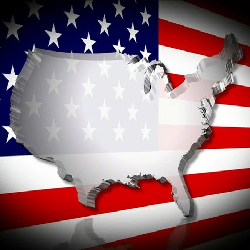US iGambling Growing But Not Expanding

When online ambling was legalized in Nevada, Delaware and New Jersey, many industry experts speculated that other states would be fast to follow, leading to a swift expansion of online gambling throughout much of America. However, things haven’t quite panned out that way. Although Pennsylvania may soon become the fourth state to legalize iGaming and New York and Mississippi are also actively considering moves to make online gaming legal, the expansion of online gambling has been very slow. Even with the amount of online gambling revenues increasing every year, other states are slow, if not completely unwilling, to consider legalizing iGaming. But why? Here are a few of the reasons:
Over Estimations
When New Jersey passed their online gambling bill, the state promised that iGaming would generate $1 billion in revenue when it launched. In the end, the first year after legalization the online gaming industry only raked in $12 million. While this is still a sizable amount of money, the focus wasn’t on what was earned; it was on the shortfall. This fueled the argument that online gambling isn’t even profitable for states. As Gambling Compliance research director Chris Krafcik explains:
“Internet gambling revenue in Delaware, Nevada and New Jersey badly missed initial forecasts, which themselves were overly aggressive. The negative P.R. that resulted, fair or not, really took the wind out of the expansionary sails.”
Uncertainty Over Legality
The U.S. Congress has been toying with a piece of legislation called The Restoration of America’s Wire Act (RAWA) that would make online gambling illegal in every state. Pushed by casino owner Sheldon Adelson, this legislation would put states that already offer online gambling in the position of possibly having to take the federal government to court over the right to continue to allow iGaming within their borders. Some states have chosen to take a “wait and see” approach rather than go ahead with plans to legalize online gambling, stating that if The Restoration of America’s Wire Act fails, they will revisit whether or not to introduce iGaming.
Problems with Payments
One of the reasons why New Jersey’s online gambling revenue was so much less than expected was because people simply couldn’t get access to funds to gamble. Until recently, MasterCard and Visa were unwilling to allow online gambling sites to charge to their cards, even if the cards were issued in places where it was legal to gamble online. Now, MasterCard is approving about 70 percent of transactions in New Jersey, and Visa is allowing around 62 percent of transactions to go through. PayPal is also beginning to work with online gambling sites, eliminating one of the major barriers to playing–paying.
Worries About Enforcement
Many states seem afraid of just how they will ensure that online casinos are only accepting players from within their borders, and taking steps to keep minors from gambling. So far, though, the states that have legalized online gambling have had few, if any, instances of people getting past the high-tech security features that have been developed by site operators. These include geographical location sensing features that can tell whether or not a player is located in Delaware, New Jersey or Nevada.
Prospects Going Forward?
According to Gambling Compliance, nine US states will seriously debate legalizing online gambling in 2016, although the ones most likely to adopt regulation according to the group’s forecast are Pennsylvania, California, New York and Mississippi. While online poker represents around 20 per cent of overall iGaming revenues, the skill-based game is considered important in driving new customers to online gambling sites, and the granting of a New Jersey iGaming license to PokerStars is seen as an important step forward in growing the market.
The world’s biggest poker site is expected to launch its New Jersey site sometime in the first quarter of 2016, with PokerStars’ entry likely to “precipitate a material reshuffling of the landscape for regulated online gambling in both the U.S. and abroad,” according to gaming analysts Adam Krejcik and Chris Grove from Eilers Research. There are even suggestions that in the long-run PokerStars could encourage a shared iPoker network to be be organized across multiple states, although given PokerStars’ dominant position in the industry, “competitors may be loath to open the door to such a significant edge.”









